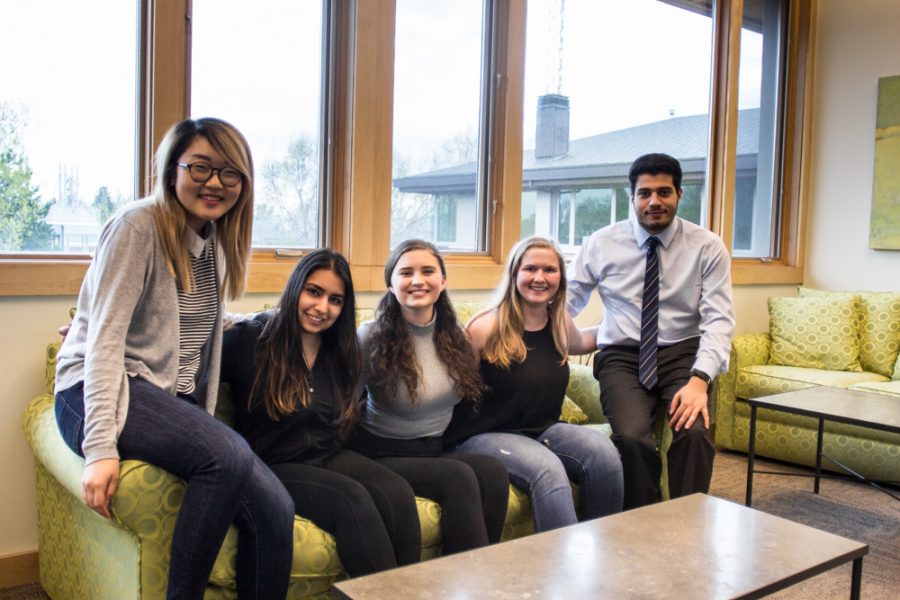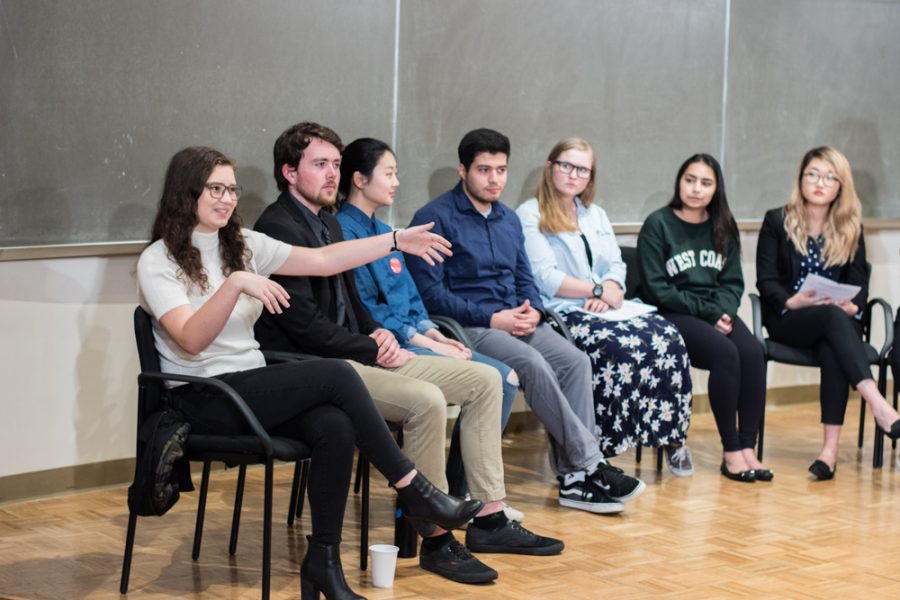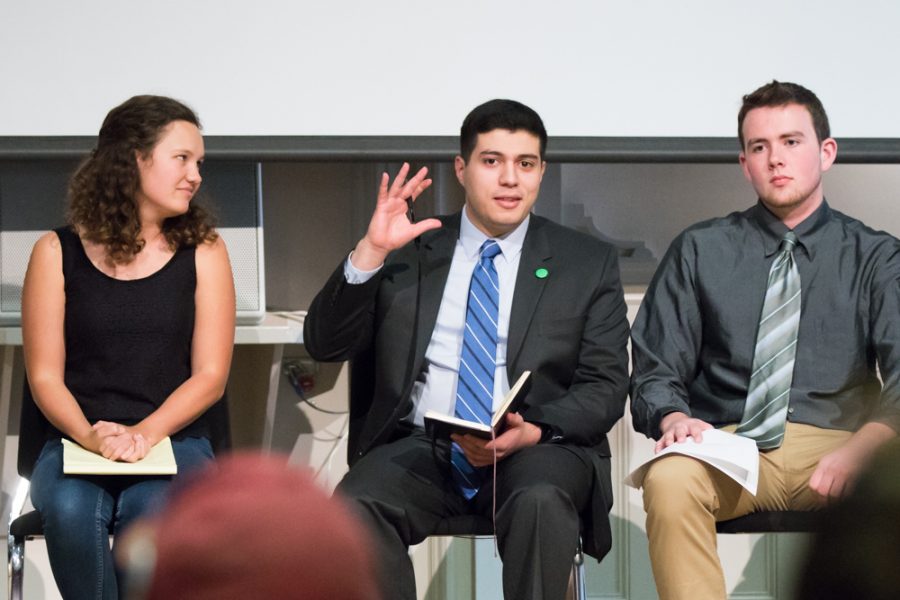More students will be sitting on governing board committees alongside trustees, overseers and faculty next year, announced ASWC President Kayvon Behroozian at an ASWC Senate meeting on Sunday, March 3.
Following conversations with several trustees last week, including the Board of Trustees’ chair Peter van Oppen and vice chair Nancy Serrurier, Behroozian said that plans have been confirmed to more than double the number of student representatives currently participating in governing board committees.
“Student representation has been my goal this entire year with respect to the governing boards,” said Behroozian, who brought up the issue of student representation when trustees visited campus in February.
Currently there is a student representative on the Student Life, Enrollment, Academic Affairs and Diversity committees. The change will add a student to each of those committees, as well as adding two students each to the Technology Task Force, Budgeting and Buildings and Grounds committees.
Behroozian and the ASWC nominations committee are in the process of appointing the new representatives in cooperation with the governing committee chairs, and hope to have them selected by May 2. The selected students will be able to sit in on committee meetings for the remainder of the year and will be officially appointed to their positions over the summer.
Though there was some discussion earlier in the year about having a student representative sit in on or participate in Board of Trustees meetings, Behroozian said that for the moment ASWC is focusing on building student presence in other areas of the governing boards.
“We didn’t abandon [the idea of a student representative]; we made a compromise,” he said. “That’s not to say that we won’t pick it back up in the future, but first we need to prove that we’re capable of doing it [through student representatives on committees].”
While the Board of Trustees does have voting power in decisions that affect the College, van Oppen noted that committees may play an equally important role in governing the school, citing the committee-driven creation of Whitman’s undocumented students policy.
“The bulk of the work in the governing boards is done through the committee structure,” he said. “The committees are the functional governing units to a great extent.”
In addition to adding student representatives, van Oppen and other trustees have stated their commitment to setting aside more time to interact with students and hear their thoughts while on campus.
“It’s always easy in the crush of business to come to campus and not make time for students,” said van Oppen. “[But] students are why we’re there … we want to incorporate their viewpoint as a key constituency on campus.”
Though there are obstacles to appointing more students to committees, including the frequent turnover of student representatives due to graduation, Behroozian said he hopes that the dedication of the student representatives will establish increased student participation in governing boards.
“It is a matter of setting precedent. Unfortunately I can’t say for certain that this will stick around for years to come, but what I can say is that it likely will,” he said.








